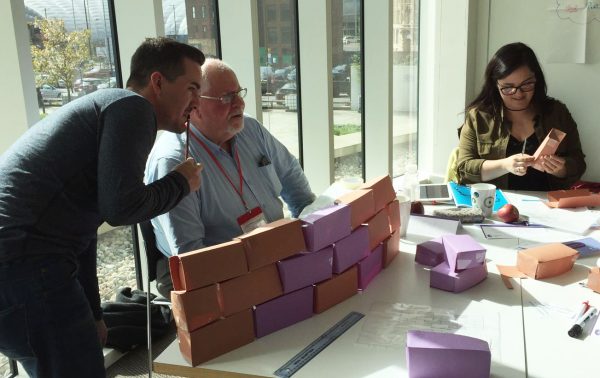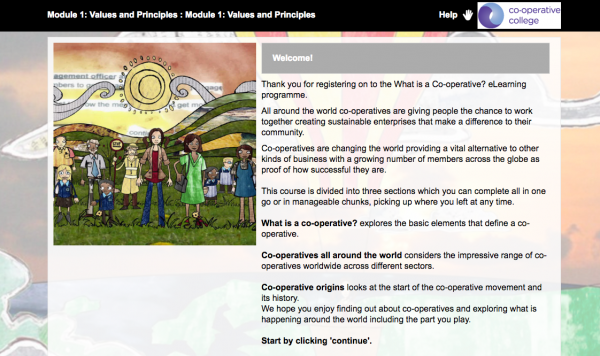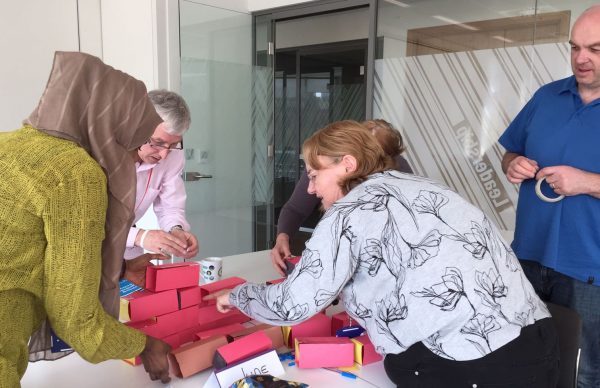Co-op News’ guide to governance in the co-op movement turns to the issue of training. As the business environment and economic climate change, fresh challenges come the movement’s way – and governance of an organisation needs to change to match. So how can directors keep pace in a time of rapid change?
Keeping up to date
“Organisations change all the time, as does best practice in co-operative governance,” says Emma Laycock, Co-operatives UK’s advice manager. “A neglect of governance weakens the framework of accountability and carries risk to the co-op. That’s why regular governance reviews and training are essential for co-ops – they help ensure the fundamentals of an effective member owned business run smoothly.”

Jim Booth, head of co-op development at the Scottish Agricultural Organisation Society (SAOS) agrees. “As the business environment gets tougher, the quality and strategic capability of its board is critical for a co-op,” he says. “Therefore continuous training is essential to ensure all directors have the skills and capabilities to meet the challenges.
“One of best ways to improve a co-op’s performance is to develop the skills and capabilities of its directors. Training of both new directors and for existing directors, as continuous professional development (CPD), is essential for success.”
The training offered by co-operatives to those involved in its governance varies depending on the organisation’s size, type and sector; some offer internal training, while others use the skills of external experts.
Related: A guide to governance – how do we steer the co-op ship?
Co-operatives UK, for example, offers essential and advanced training for co-op directors and secretaries, plus an additional range of in-house training for boards, focusing on specific areas they would like, or doing governance reviews, audits and health-checks.
Peer-led learning
SAOS, which supports farm co-ops across Scotland, has a suite of director development training workshops. Its Foundation programme contains six workshops including effective co-op governance, co-op finance and managing people for farm co-ops.
“In addition we deliver a number of forums, which recognise the value of farmer directors, chairs, co-op managers and staff from different co-ops coming together to network, share knowledge, skills and experiences,” says Mr Booth.
Related: Meet three directors from three very different co-ops
“A founding principle of a forum is that the participants have ownership and decide on meeting topics, agenda, meeting times and venues. Each forum consists of 8-12 members who meet three times per year. The venues of the forum rotate around each of the participants’ co-op businesses, to ensure each meeting is very applied, and participants can investigate real examples of innovation and best practice first-hand.”
SAOS staff organise and facilitate the meetings, producing a summary of learning from each meeting to ensure they are outcome-based. “This type of approach to KT and skills development is very successful, as it is an effective route to motivate individuals to change their behaviour through the influence of peers.”
Bespoke co-operative support
The Co-operative College offers a wide range of training, from interactive full day workshop and board skill audits, to short high-impact eLearning courses.
“Governance is a topic that is constantly evolving, and it is important that every single person within an organisation understands what it means for a co‑operative to be well governed, no matter what their role,” says Angela Colebrook, learning & development manager at the College.

“It is the only way to ensure that every aspect of the business is working in a truly co‑operative way, and that all members and employees are working towards the same goal. [Everyone] needs to understand the importance of governance and crucially what makes co-operative governance different.”
There is also training available from co-operative development bodies, most of which offer bespoke support rather than ready made courses: Co-op Business Consultants, Co-operative Futures, Consultancy.coop and Cooperantics, to name a few.
Cooperantics’ Kate Whittle believes that training of some kind is essential for “co-operators to unlearn many of the assumptions that we make about how business works”. Co-operative inductions – for both members and those involved in governance – are key, she says. “If a co-op neglects that, new members and directors will bring their unquestioned assumptions about how business works and act on them with a very real danger that the co-operative culture will be undermined.”
CASE STUDY: GOVERNANCE TRAINING AT THE CO-OPERATIVE GROUP MEMBERS’ COUNCIL
In August 2014, the Co-operative Group established its Members’ Council as part of a widespread governance reform. Now the 100-strong council is the representative body of members within the society and its elected members have the power to hold the board to account. How do they make sure council members are prepared for the role?
When members are elected to the council, a skills audit takes place – through that, an initial training programme of six units was designed. These are all distance-learning modules, and include units on: effective governance; values and principles; developing engaged membership; finance; core business strategies; and a skills-based learning unit called ‘Working Together Effectively’.

The modules were designed in partnership with the Co-operative College, which also assists in the delivery of workshops and provides tutor support.
“The training modules have evolved,” says Gill Gardener, council secretary. “The council was a new structure after the material governance changes and new rules of 2014, which were driven from crisis. Now the roles of Council are embedded and working well.”
The council training year starts in May, when new members are elected. Three units are available in first six months of year and another three in second half of year. As part of each module, council members are required to read materials and complete an assignment, for which assistance can be provided via workshops planned around council meetings.
The assignments are kept confidential and submitted online via a virtual learning environment. A tutor marks the coursework, which members have to pass in order to pass the modules.
The module on effective governance looks at what is governance, why it is important and what is good governance. Participants also learn about corporate governance codes, Co-operatives UK’s Governance Code and get to explore case studies of corporate and co-operative governance failure.
During this training, members find out where the council sits within the Group’s structure and what are its roles. The course also touches upon how to deliver the “co-op difference” and the council’s role in it.
“Because the council is new, it’s important that council members feel supported in the training,” adds Ms Gardner. “As council secretary, I’m very confident that they are carrying out good governance within the ambit of their roles.”

